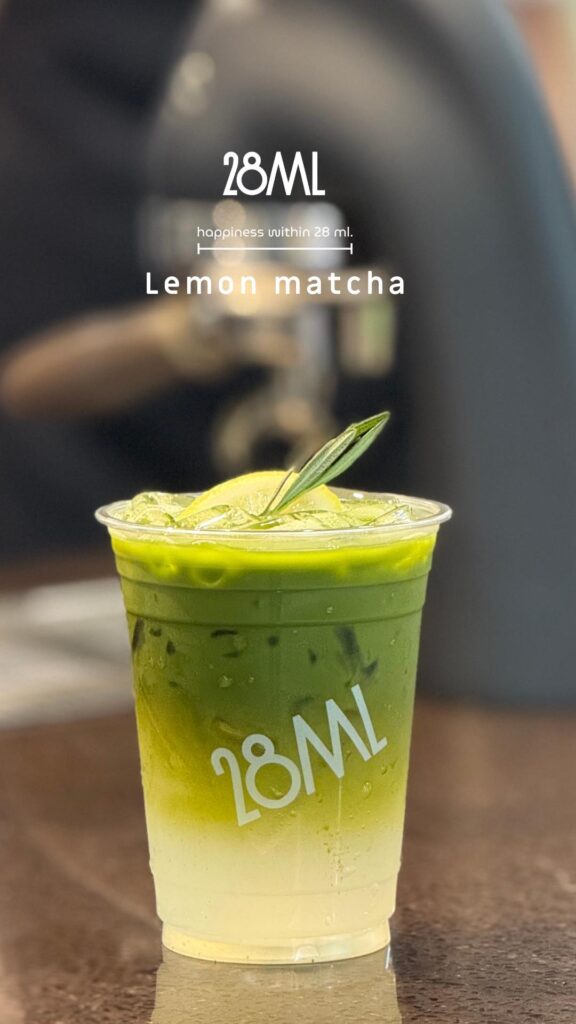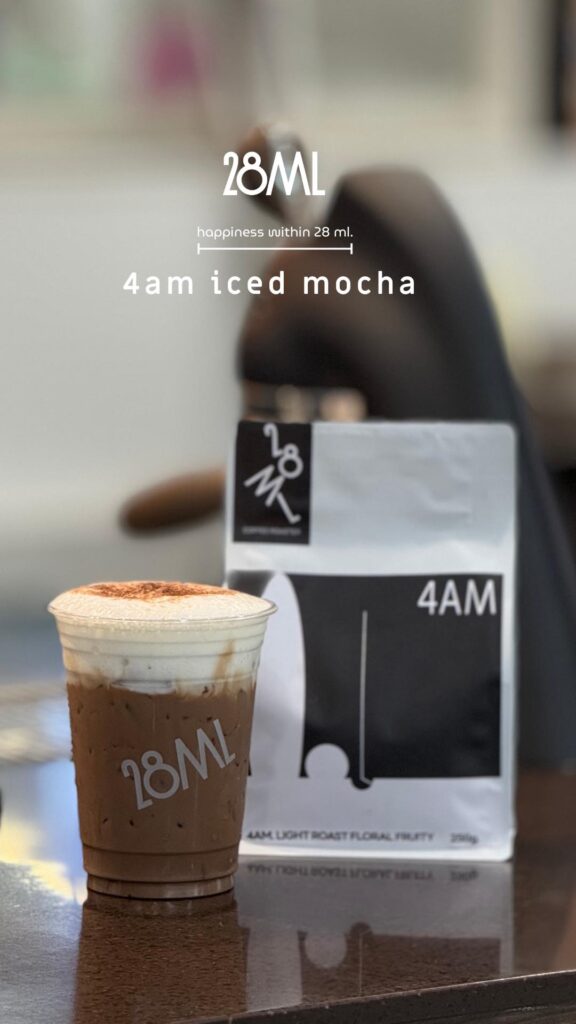Matcha and coffee are popular beverages with long histories and significant roles in various cultures worldwide. Today, besides coffee, matcha has become a popular choice for those seeking caffeine. 28ML will explore the similarities and differences between these two beverages and determine which suits whom. Let’s dive in!
Similarities:
-
Caffeine: Both matcha and coffee contain caffeine, which stimulates the nervous system, promoting alertness.
-
Low Calories: When consumed without added sugar or milk, both beverages are low in calories.
Differences:
-
Caffeine Content: An 8-ounce cup of coffee contains approximately 96 milligrams of caffeine, while 1 gram of matcha contains 19-44 milligrams, equating to 38-88 milligrams per standard 2-ounce serving.
-
Antioxidants: Matcha is rich in antioxidants, helping reduce the risk of chronic diseases.
-
Flavor: Matcha has a mild, fresh flavor, whereas coffee offers a stronger, more bitter taste.
Lifestyle:
-
Matcha: Suitable for those seeking calmness and focus, as it contains L-theanine, which aids relaxation.
-
Coffee: Ideal for individuals needing alertness and energy for work.
Matcha:

- Origin: Matcha is a green tea powder made from finely ground high-quality green tea leaves. It originated in
- Culture: In Japan, matcha plays an important role in the tea ceremony (茶道, sado), a ritual that reflects calm, concentration, and respect. Brewing and drinking matcha in this ceremony trains the mind and builds bonds between the participants.
Coffee:

- Origin: Coffee originated in the Arabian Peninsula, with legends suggesting that it was first discovered in Ethiopia in the 9th century. It was then introduced to Yemen and spread to the Middle East, Europe and the rest of the world.
- Culture: Coffee plays an important role in the culture of many countries. In the Middle East, it is used in religious rituals and social gatherings, while in Europe and America, coffee shops have become places of socializing and exchanging ideas.
Both matcha and coffee are not only popular beverages, but also reflect the history and culture of each region that is unique. Choosing to drink matcha or coffee depends on individual preferences and needs. Both have their own benefits and charms that meet different lifestyles.
Follow 28ML at:

